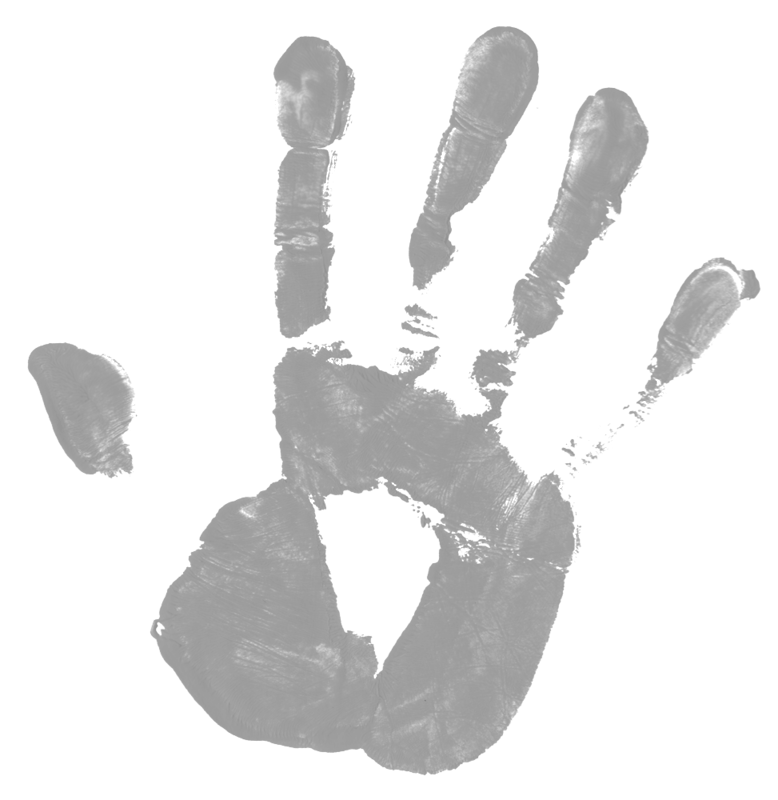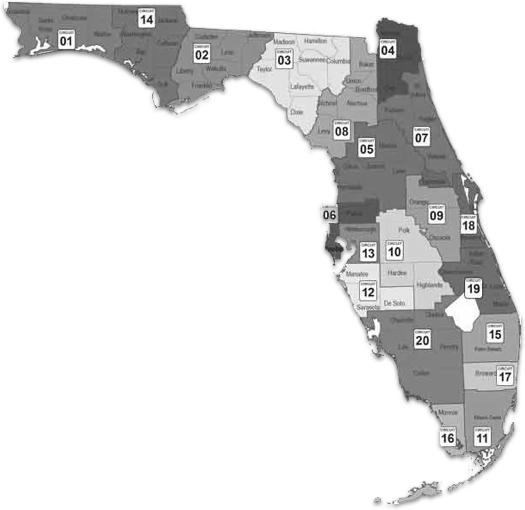THIS IS AN INTERACTIVE WEB EXPERIENCE

TIMELINE:A LOOK AT OUR PAST PROVIDES A BLUEPRINT FOR OUR FUTURE.
SCROLL UP OR DOWN TO FOLLOW THE FCC TIMELINE
HIGH POINT IN OUT OF HOME CARE
More than 50,000 children in state supervised care.
FLORIDA LEGISLATURE APPROVES TRANSITION TO A COMMUNITY-BASED SYSTEM OF CARE
First pilot community-based care program launched. Only 8,864 available licensed foster placements.

HIGHEST CASE LOADS IN THE COUNTRY
1 case manager per 30 children/families.
ONGOING CHALLENGES
of establishing effective community relationships and outcomes with state-run system.

TRANSITION TO A COMMUNITY-BASED SYSTEM OF CARE CONTINUES
More pilot community-based care programs continue throughout the state — the transition of more than 50,000 children in state’s supervision to community-based services begins.
FRAGMENTED CASE PLANNING / MANAGEMENT
continues with state-run system.
FIRST NON-PILOT CBC'S LAUNCHED AS TRANSITION BEGINS
MORE CHILDREN IN COMMUNITY-BASED CARE AS TRANSITION CONTINUES
About 13% of children in state’s care transferred to community-based care lead agencies.

NEARLY 3,500 CHILDREN
living outside of their homes with unknown placements.
25% OF CHILDREN
adopted within 24 months of removal.

CHANGES RESULTING FROM COMMUNITY-BASED SYSTEM START TO HAVE STATEWIDE IMPACTS
Number of children living outside of their homes with unknown placements drops to 469.
NUMBER OF ADOPTIONS
finalized increases to 2,380.
92.7% OF CHILDREN IN CARE
visited monthly.
COMMUNITY-BASED CARE SYSTEM CONTINUES TO IMPROVE OUTCOMES
Number of adoptions finalized increases to 2,678.

NUMBER OF LICENSED FOSTER PARENTS
increases to 4,463.
30,000 CHILDREN
in out-of-home care.

SIGNIFICANT DECLINES IN OUT-OF-HOME CARE AND INCREASED ADOPTIONS
Number of children in out-of-home care with unknown placements drops to all-time low — 398.
Number of adoptions finalized increases to 3,311.
3,400 CHILDREN
in group care.
TRANSITION COMPLETE
17 CBC's
FLORIDA IS FULLY TRANSITIONED TO COMMUNITY-BASED SYSTEM OF CARE
Since transition began in 2001:
Out-of-home placements down 9%,
Paid placements down 22%,
Children waiting for placement down 80%.

TRANSITION COMPLETE
21,631 children removed
98.1% of children in care visited monthly
14,812 foster beds
CASEWORKER CASELOADS DECREASE
from an average of 35:1 to 25:1.

OVER JUST A FEW YEARS FLORIDA’S CBC SYSTEM SHOWS DRAMATIC IMPROVEMENTS
CBC’s are professionalizing the field; there are now Masters level staff operating within leadership and supervision positions and more social service professionals in dependency case management.
PERCENTAGE OF CHILDREN EXITING DEPENDENCY
in less than 12 months has increased from 30% to 54%.
FEDERAL IV-E WAIVER GRANTED
Florida is one of the only states to receive flexibility in funding; federal funds not categorically restricted to licensed out-of-home care.
FLORIDA SYSTEM OF CARE RECOGNIZED NATIONALLY AS LEADER IN CHILD WELFARE
As a result of the federal waiver, the state and CBC system are able to make greater investments in prevention & diversion programs — keeping children safe in their own homes and more family-centered practices.

PERCENTAGE OF CHILDREN REUNIFIED WITH THEIR FAMILIES
within 12 months has increased from 44% to 64%.
26,000 CHILDREN
in out-of-home care.

NUMBER OF CHILDREN IN OUT-OF-HOME CARE REACHES RECORD LOWS
100% of children in the child welfare system are cared for by Florida’s community-based care lead agencies.
PERCENTAGE OF CHILDREN IN CARE REUNIFIED
70.4% reunified within one year of entering care,
92.8% reunified within two years of entering care.
ANNUAL LOW IN REMOVALS OF CHILDREN FROM HOMES
only 13,022 children removed statewide - a 60% decrease in 4 years.
COMMUNITY-BASED CARE CONTINUES TO IMPROVE OUTCOMES
A growing number of children are being served while front-end prevention services are also keeping more children safe in their homes.

10-YEAR LOW
Number of children in out-of-home care drops to 18,964.
CBC SYSTEM CARING FOR ABOUT 6,127 KIDS
in out-of-home care every month.

INNOVATIONS RESULT IN FEWER KIDS IN CARE & IMPROVED SAFETY
As of February 2010, the state has seen a 37 percent reduction in their foster care population without an increase in child safety issues.
ANNUAL LOW POINT
for kids living out of their homes -- All out-of-home care totals 17,754 children statewide.
32% REDUCTION IN GROUP CARE
since the beginning of statewide CBC system.
STATE RECOGNIZED NATIONALLY FOR TRANSFORMATIVE INITIATIVES
Through the community-based care system, Florida has safely reduced the number of children in foster care by nearly 11,000 – a 36% reduction

SET ADOPTION RECORDS
with nearly 12,000 children adopted from foster placements since 2007.
RIGHT FOR KIDS RANKS FL 4TH BEST
child welfare system in the country.

FLORIDA SYSTEM OF CARE IS RANKED AS ONE OF THE BEST IN THE COUNTRY
Florida is among one of the lowest funded child welfare systems in the country, despite outcomes. 13,200 children removed from their homes resulting from reports of abuse or neglect.
FLORIDA'S PER CAPITA SPENDING PER CHILD RANKED 41ST
for only spending about $37,000 per year per child.
10-YEAR LOW
in number of children living in out-of-home care statewide.
LOWEST NUMBER OF CHILDREN & YOUTH IN GROUP CARE IN 10 YEARS
“Florida is leading the nation with its common sense to foster care.” — DCF Secretary in testimony before U.S. House Ways & Means Human Resources Subcommittee May 9, 2013.
176,000 child abuse reports.

1,500 CHILDREN
in group care.
INCREASE OF CHILDREN COMING INTO CARE
as a result of enhanced child protective investigations.
FLORIDA IMPLEMENTS SAFETY METHODOLOGY TO IMPROVE PROTECTION OF CHILDREN IN CARE
Starting in July 2014, Florida’s child welfare system strained by a 35 percent increase in the number of children and youth entering state care when compared to the previous 6 years.

OUT-OF-HOME CARE CROSSES 20,000 MARK
statewide for first time in 6 years.
FUNDING CHALLENGES
Florida Tax watch study reports that (adjusted for inflation) CBC’s have had a 13% reduction in funds since 2008.

SYSTEM CHALLENGED BY INCREASES OF CHILDREN IN CARE VS DECREASES IN FUNDING
State sees an 11% spike (more than 2,142 children) entering care just between December – May 2015.
264 VERIFIED CASES
of commercially sexually exploited children (CSEC).
191,000 CHILD ABUSE REPORTS
8.2% increase over 4 years.
SYSTEM OF CARE SEES BIG SPIKES IN REMOVALS OF CHILDREN AND YOUTH
System experiences a 10-year high in number of children removed from their homes and placed in state care — 15,941 children in care.

15,900 CHILDREN REMOVED FROM HOMES
resulting from reports of abuse and neglect -- a 21% increase in 4 years.
14 CBC LEAD AGENCIES PROJECT DEFICITS
9 lead agencies apply for relief funds to cover deficits.

SYSTEM OF CARE STRAINED BY SPIKES IN REMOVALS AND LACK OF FUNDING
System has been under a critical financial strain the last 3 years. Risk pool and back of the bill funding totaling $55 million has been required to keep the system afloat.
GAPS IN SERVICES WILL CONTINUE WITHOUT ADEQUATE FUNDING
Child abuse reports increase by 8.2% over last 5 years; removals increase by 20.3% over last 5 years.
SPIRIT
In the future to thrive, Florida’s system of care needs to continue investing in heart/practice/community. Communities need the resources and flexibility to focus on children and families and providing them a brighter, safer future.
ACTION LEGISLATURE / GOVERNOR
It’s time for the Florida lawmakers to invest in a system of care that works. This will have significant, positive impacts in the field and for our provider agencies resulting in more improved outcomes.
BLUEPRINT FOR CHILDREN TO THRIVE, WE MODERNIZE SYSTEM OF CARE MOVING FORWARD:
The community-based system is the heart and soul of an innovative and ever-improving child welfare system.

SCIENCE
It’s time to bring Florida’s system of care into the 21st Century. We need to modernize the tools and technologies we use in our work every day:
Make all case managers mobile;
Provide apps to monitor health & wellbeing of children in care;
Update CCWIS etc.
WE KNOW THE COMMUNITY-BASED SYSTEM OF CARE WORKS
We are a national model for adoption, improved outcomes and innovation. Adequate investments will only ensure continued improvements.